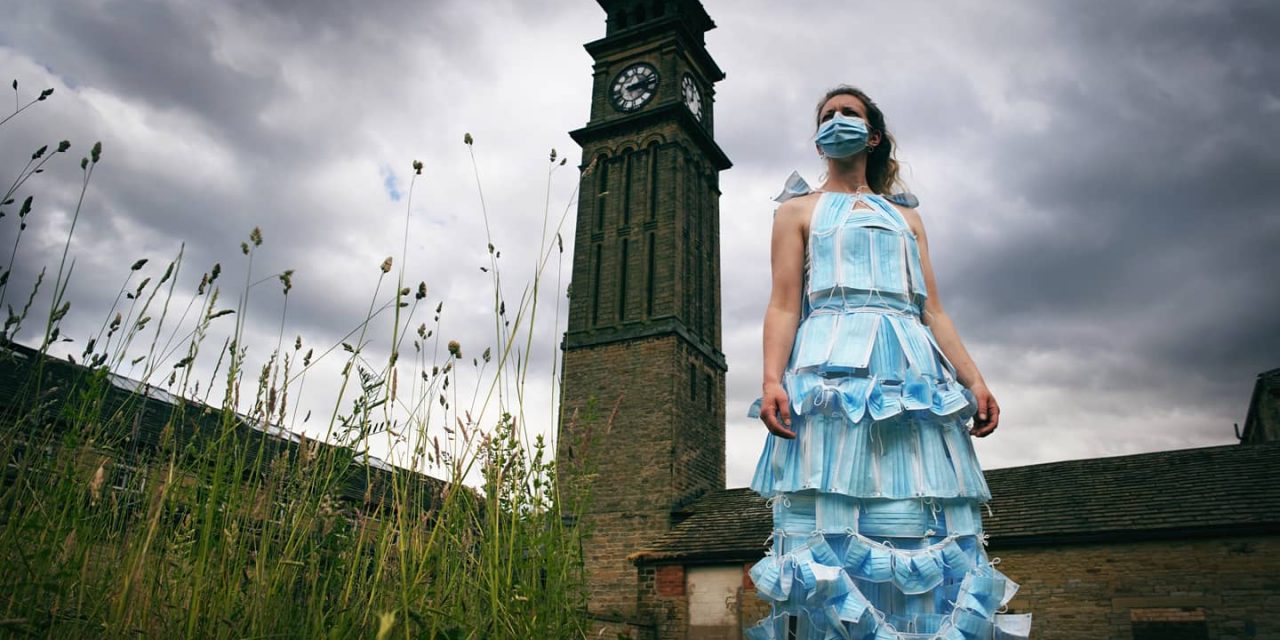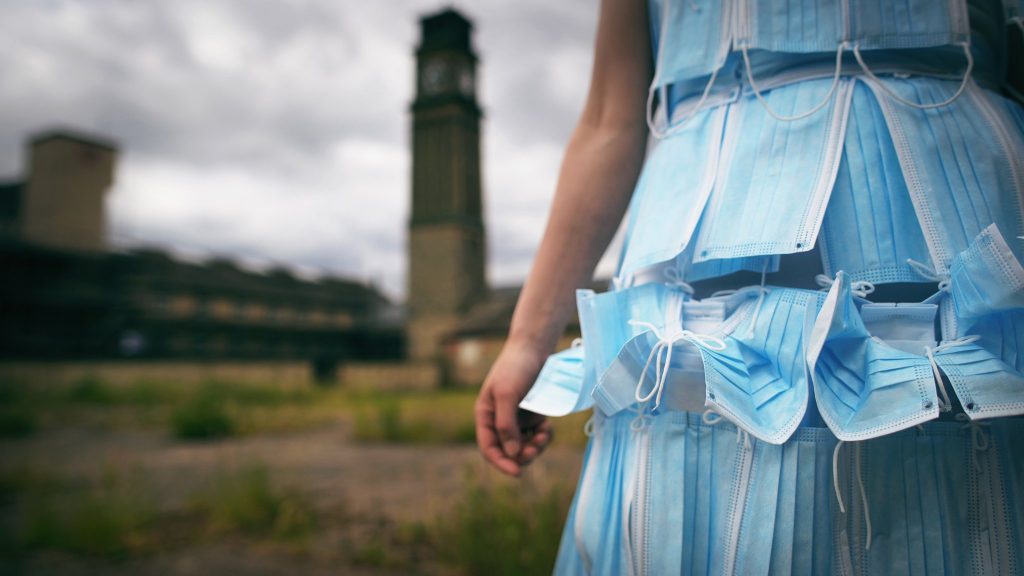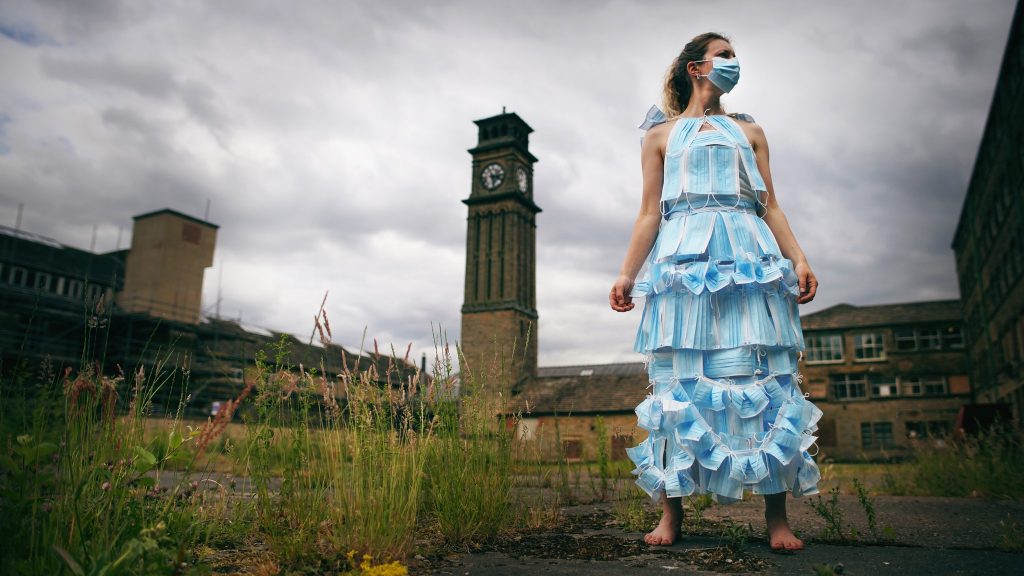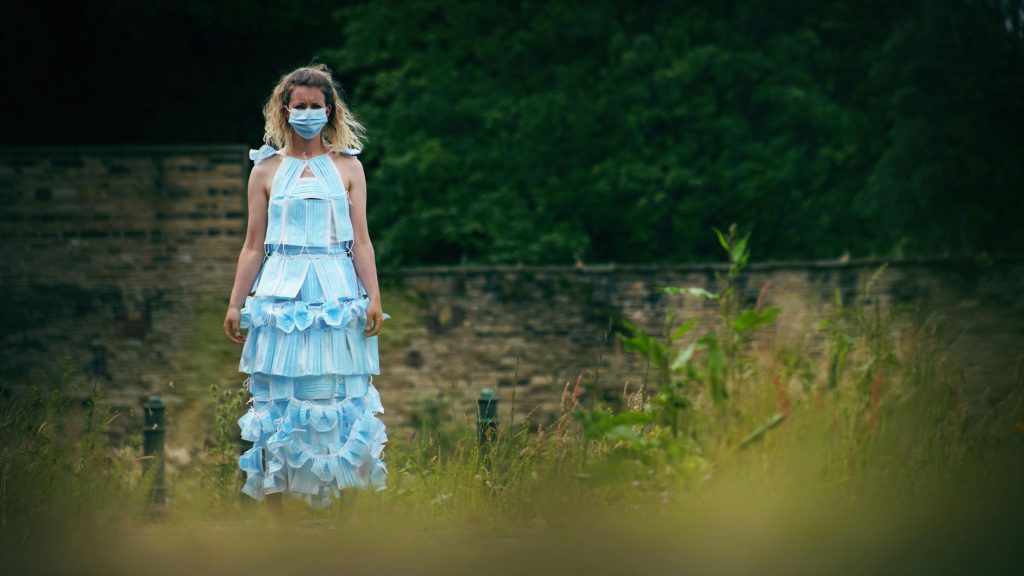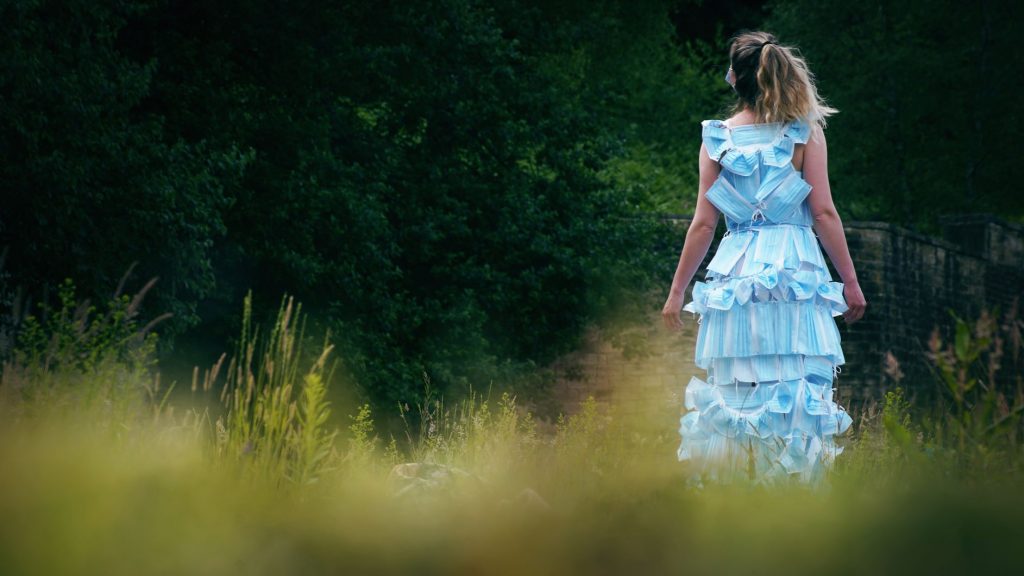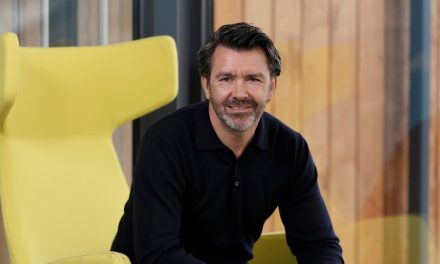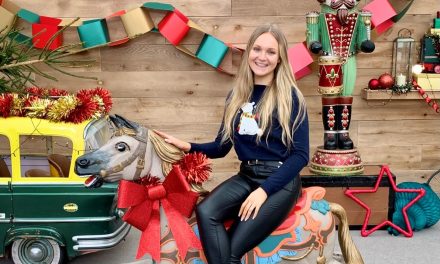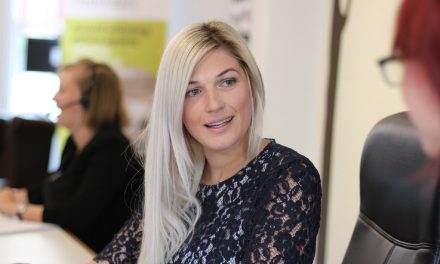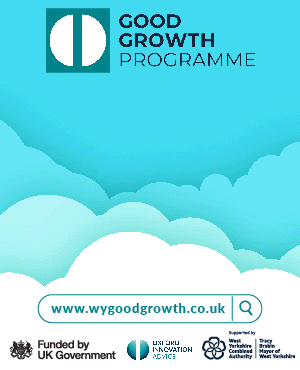Into the Spotlight, sponsored by Huddersfield-based Scriba PR, is a weekly business feature which shines a light on some of the great businesses in Huddersfield. Here, we introduce sustainable fashion consultant Julia Roebuck of Upcycle Fashion.

Julia Roebuck has a passion for fashion – but not in the way you might think.
Julia, 34, runs Upcycle Fashion in Armitage Bridge and is a freelance sustainable fashion consultant and upcycle designer.
The former Holmfirth High School and Greenhead College student has a masters’ degree in Fashion and the Environment from the London College of Fashion.
Every year in the UK two million tonnes of waste clothing and textiles are sent to landfill and Julia’s mission is to encourage people to create new – and fashionable – garments and accessories from clothing cast-offs.
And to highlight the disposable nature of modern-day fashion Julia designed a special dress for the Kirklees Woven Festival – made from disposable face masks, the ultimate wear-it-once throwaway product.
“Disposable face masks are a symbol of our times,” said Julia. “We see them on people’s faces, in litter on the streets and in beach clean-ups.
“Pre-Covid there was a big move against single-use plastics, straws and so on but overnight we have had to accept polypropylene face masks that are only intended to be worn once.
“I’ve seen figures that show 102 million face masks are disposed of every day and that’s shocking. Ninety per cent of all face masks worn are disposable and I wanted to explore that.
“I don’t have any answers, I just wanted to provoke a conversation.”
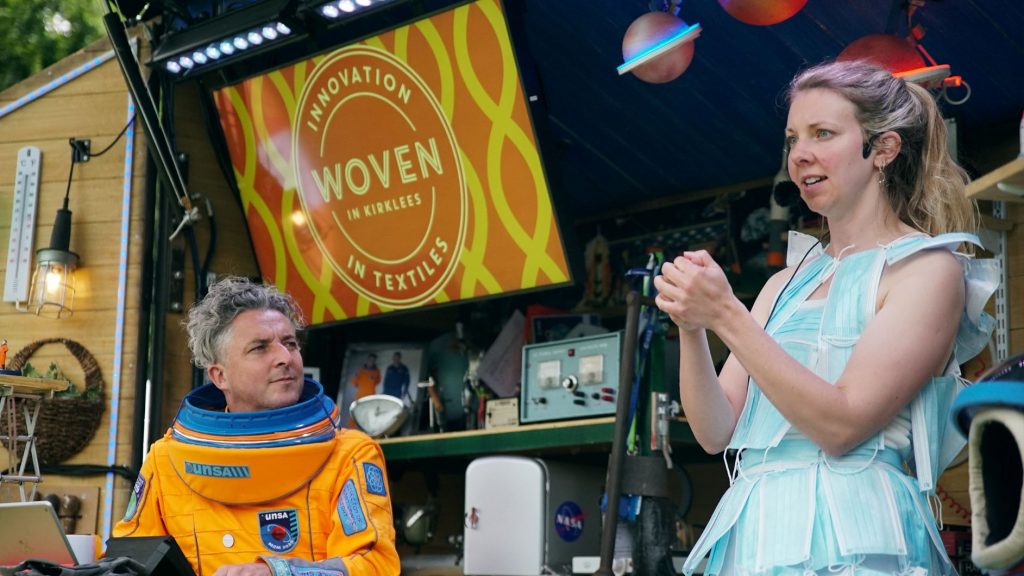
Julia created a head-turning dress from 102 face masks fastened together with their own loops, along with a few strategically-placed staples.
She wore the dress at a Woven event called Space Shed in Greenhead Park in Huddersfield which discussed science and innovation in textiles. It certainly made a point.
Julia wants people to think about disposable fashion and how they can recycle and re-use and turn tired clothing into something new, giving it value and longevity.
Into the Spotlight – explore our archive of business stories
“Since charity shops re-opened after lockdown they have become a dumping ground for textiles,” said Julia. “Everyone has had a clear out and given what they don’t want to charity shops.
“But what happens is that it stays on the shop floor for two weeks and if it’s not sold it goes into the rag trade and much of it is exported overseas. It’s been reported how a lot goes to places like Ghana where they can’t deal with it and much ends up on beaches, in the oceans or in landfill sites.
“I don’t expect people to wear the exactly same clothes for 50 years but we can have better fashion, one that does not trash the planet.”
There was an explosion in crafting during the pandemic and Julia wants people to learn sewing skills so they can turn their old clothes into something new.
Sewing and home economics fell off the school curriculum in the 1980s and 1990s and with sewing not taught at home like it used to be, sewing skills have been lost among the younger generation.
Julia wants to call a halt to the dumping ground culture of fashion and end the “over-consumption” where clothes are worn for a bit and then discarded.
“Sewing is an essential life skill and we need to bring those skills back,” said Julia. “What we know is that investing time in a textile piece is great for well-being and mental health too.
Into the Spotlight – Empire House is a new business club in Slaithwaite
“My simple call to action would be just to keep your clothes for as long as possible and that could be within your own home or within your own village or local community.”
Julia is even keeping her ‘disposable’ face mask dress. She might have made it to make a point but it’s not going to be taken apart.
“It’s in my studio and I’m going to keep it,” said Julia. “It’s now part of my experience of the pandemic and something to look back on.”


